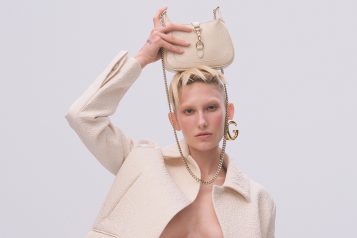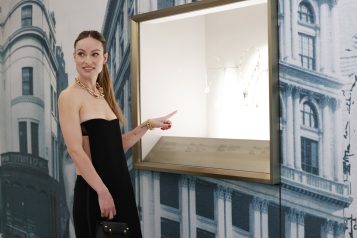Muna Rihani Al-Nasser wants to change the world. And to do so, she’s ready to fight, peacefully, of course. “We can’t change the world just by looking at it and saying good things,” she asserts, her hands waving wildly in the air. “And you can’t just rely on the government. Everyone needs to be responsible,” she continues with the perfect balance of earnestness and fervor that it’s hard not to nod along.
Al-Nasser currently serves as the chair of the UN Women for Peace, a non-profit organization committed to empowering women in under-advantaged countries and preventing violence against women and girls through education and partnerships with the United Nations. “We create a link between private sectors and the UN,” she explains. “We want private sectors to be responsible and give back to the UN so they can make changes, fund programs and create awareness so we can put pressure on the government and make women’s issues a priority in the agenda.”
Though capturing the attention of the United Nations is no easy feat, it’s a relationship that Al-Nasser has nurtured for many years. Her husband, Nassir Abdulaziz Al-Nasser, served as Ambassador of Qatar to the United Nations for 13 years, then as President of the 66th session of the United Nations General Assembly. “Being an ambassador’s wife, you feel like you are nobody. You are simply a ‘wife of,’” she reveals, a hint of emotion rising in her voice. “But later, I realized that we can do a lot of things on our own and we need to be even more responsible because our husbands are close to the government. My husband is promoting peace in different countries as the UN High Representative for the Alliance of Civilizations, and if you don’t do anything, it’s a waste of time. That’s why I felt like I needed to do something related to the UN because I can’t imagine what the world would look like without the UN.”
As more and more ambassadors’ wives became involved, word spread throughout the UN about the organization’s mission to provide opportunities for women through social, cultural, educational and empowerment programs, while partaking in a global peace building process. “Instead of creating our own projects, we thought that we should use our capability and connections to partner with the UN because they already have a platform and connections to the government,” Al-Nasser divulges. “They can facilitate a lot of things, plus we’ll have a greater impact.”
One of the organization’s most celebrated accomplishments is the annual “March in March To End Violence Against Women,” which has received support from world leaders and celebrities including Susan Sarandon, Christy Turlington Burns, Monique Coleman, Alexandra Richards, Kelly Rutherford, Alexis Bledel, UN Secretary General Ban Ki-moon and his wife, Ban Soon-taek. On March 7, the UN Women for Peace will join hundreds of supporters, UN dignitaries, ambassadors—plus plenty of star power—at the gates of the UN headquarters and march across the street to Dag Hammarskjold Plaza. “It’s not about how much you walk,” Al-Nasser explains. “Last year, we walked in the snow, completely exposed, to show people that we need to end violence against women.” To drive the message home, the organization broadcast a message from Malala Yousafzai, the Pakistani teen that was shot on her school bus by the Taliban in 2012 over her activism surrounding women’s rights and education. “She spoke to us from her hospital bed,” Al-Nasser says. “We wanted to really show people the importance of equal education for boys and girls.”
In 2012, the foundation began raising funds and awareness for the UN Trust Fund To End Violence Against Women, which was established by the General Assembly in 1996. “It’s entirely managed by UN women. Every year, they focus on one issue of violence and they work directly with organizations on the field,” she states. “Last year, it was aimed at ending violence against women in countries of conflict. This year, it’s targeting adolescent girls.” Though the trust fund extends to women all over the world, it is particularly concerned with ending violence against women in developing countries. It also invests, through its partners, in long-term solutions for a world free of violence.
Though the complete absence of violence may seem like a pipe dream, Al-Nasser believes that the first step isn’t to rid the world of weapons, instead, it’s to educate women worldwide. “Through education you can change a lot,” she says sincerely. “If we empower women, educate them, and give them security, then they will be productive. Women can make a lot of difference at their homes and with their children—much more than men!”
As such, the UN Women for Peace remains committed to providing higher education to underprivileged women by awarding yearly scholarships to the University for Peace in Costa Rica. Throughout their tenure at the university, the women are taught how to promote peace among all human beings while exercising tolerance, cooperation and understanding. If more women are able to harness these tools of peace, Al-Nasser hopes that the political field will become more even in terms of gender distribution. “The number of women in government is very low, yet half of the world is women,” she exclaims. “We want to have more women be responsible and negotiate for peace and be leaders of the world.”







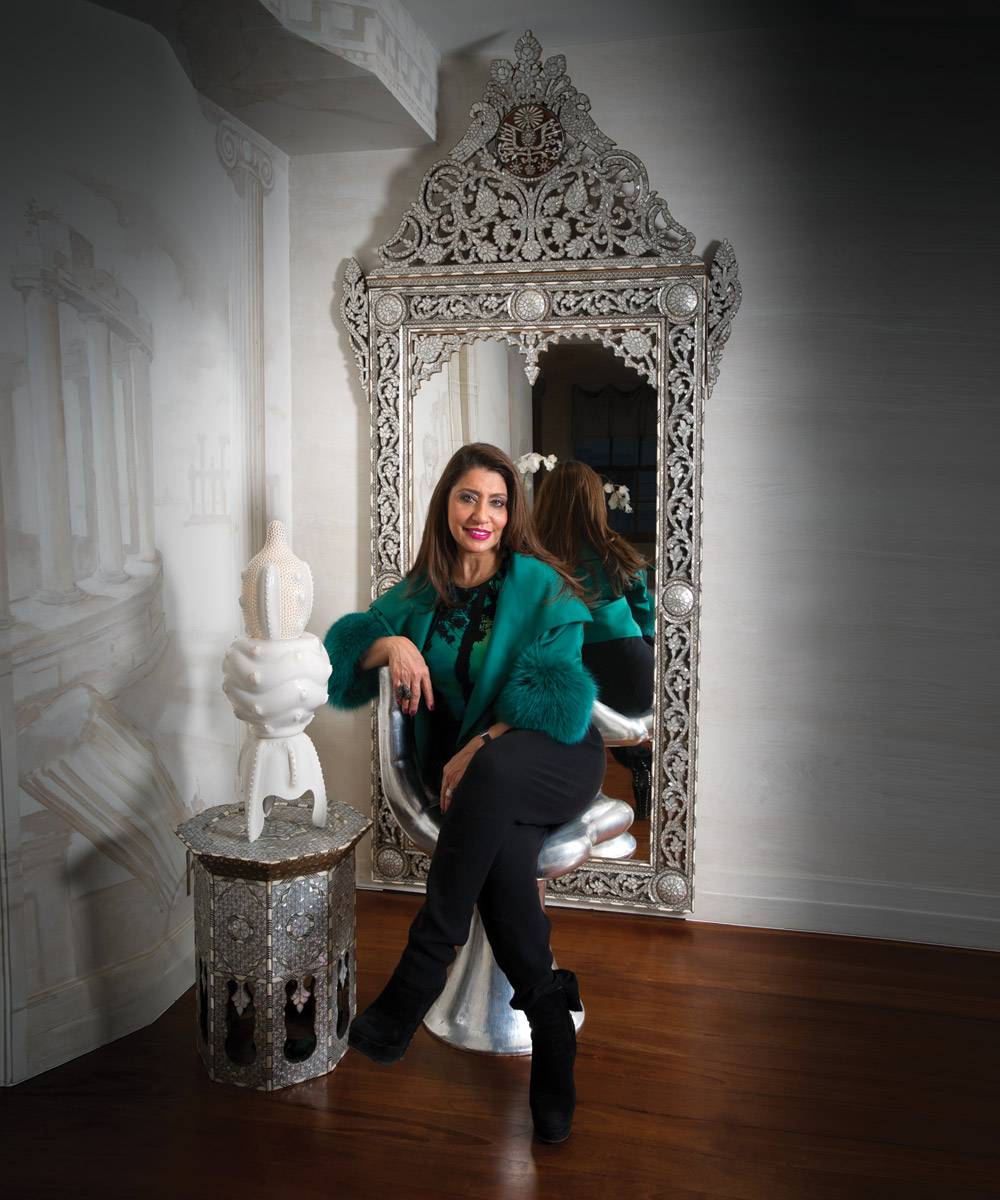
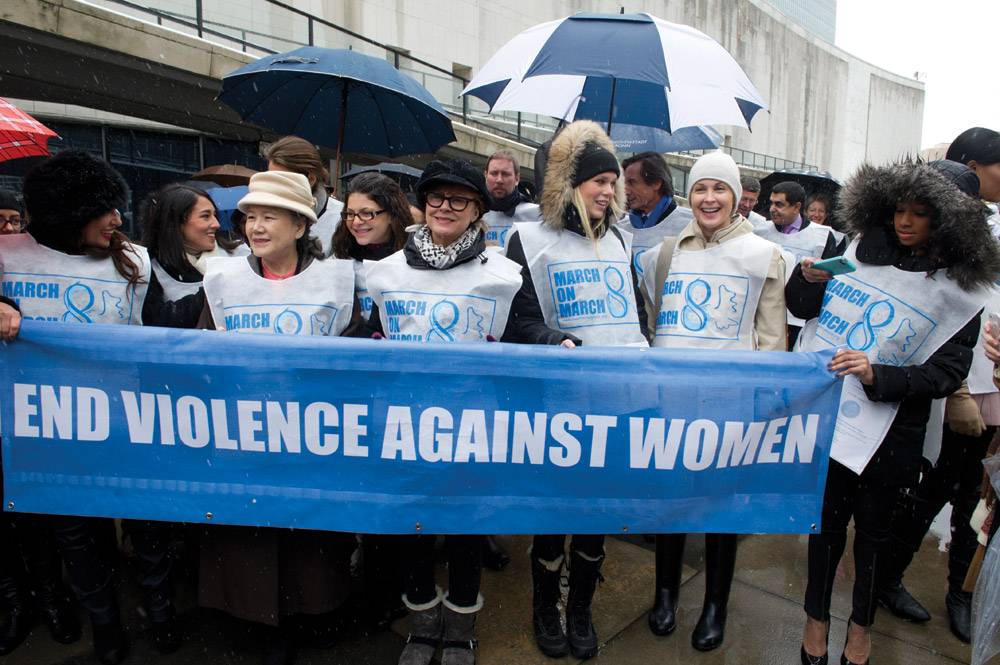
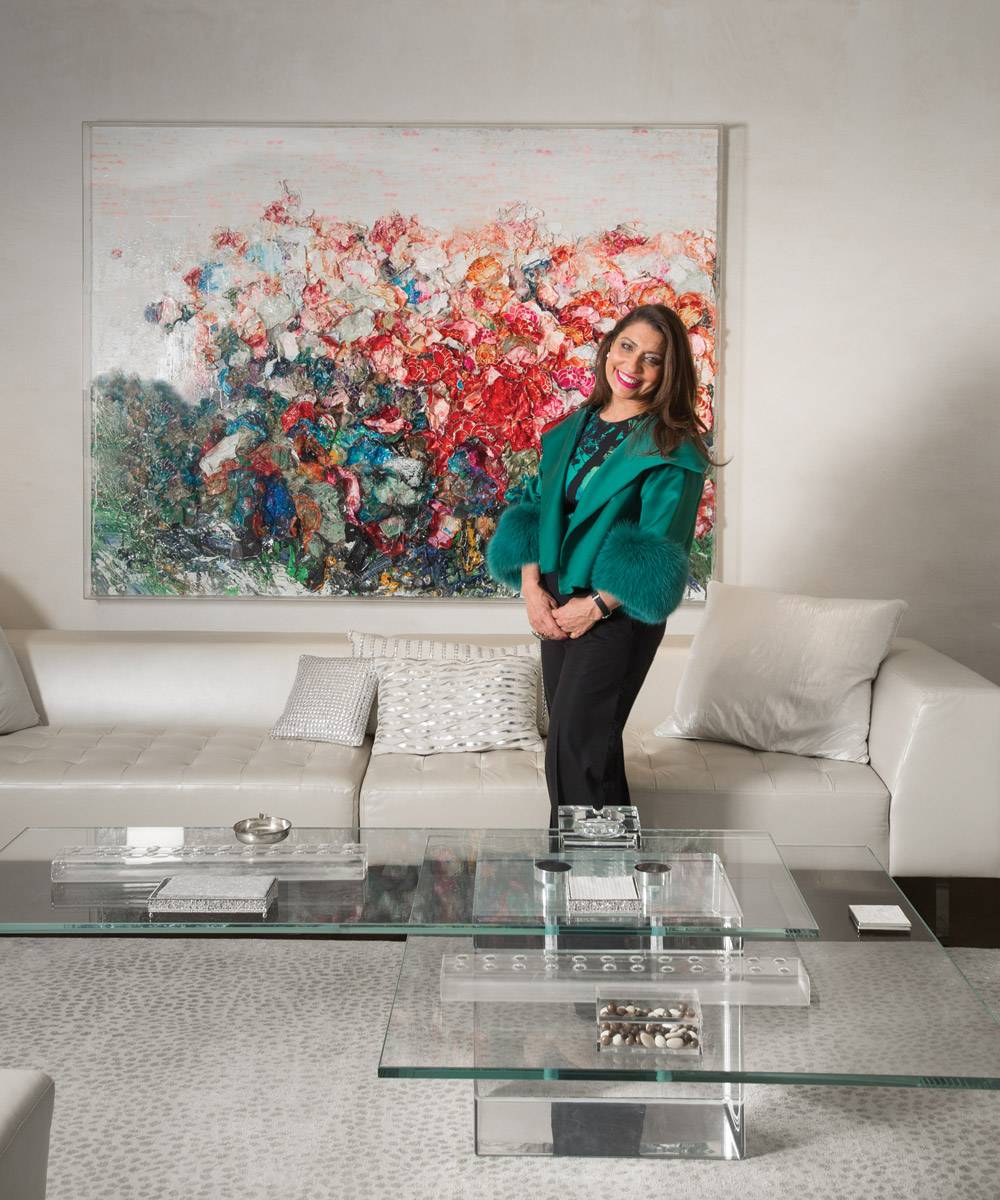
![Landon-Oakley-and-I[1]](https://hauteliving.com/wp-content/uploads/2014/02/Landon-Oakley-and-I1.jpg)





